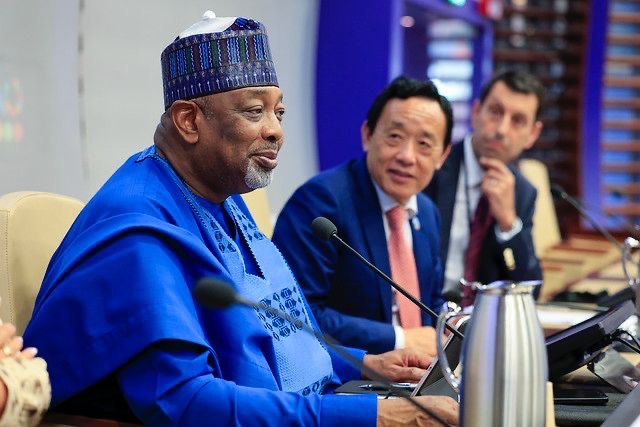Nigeria’s Minister of Agriculture and Food Security, Abubakar Kyari, has announced a series of proactive policies aimed at transforming the nation’s food systems. These measures are designed to unlock sustainable agrifood systems, restore ecosystems, safeguard the climate, and ensure dignified livelihoods for millions of Nigerian farmers.

Speaking at the High-Level Event on “Unlocking Sustainable Agrifood Systems for Climate, Nature, and Livelihoods” during the UNFCCC Standing Committee on Finance Forum in Rome, Kyari outlined Nigeria’s commitment to climate-smart agriculture and inclusive food security.
Partnership with FAO to Drive Evidence-Based Policies
Kyari highlighted Nigeria’s ongoing collaboration with the Food and Agriculture Organization (FAO) through the Monitoring and Analyzing Food and Agricultural Policies (MAFAP) Programme, launched in 2022. This partnership provides extensive policy analysis to inform Nigeria’s agricultural reforms and accelerate the transition to a climate-resilient, nature-positive food system.
CHECK>>> How to Get a Nigerian Tax ID Before Jan. Deadline for Bank Account Holders
Key initiatives under this framework include:
Distribution of improved seeds to farmers
Promotion of sustainable soil management
Expansion of agroforestry systems
Increased food production and rural livelihoods
National Agrifood Systems Investment Plan (NASIP)
The NASIP is designed to enhance agricultural investments, expand job opportunities, and make nutritious diets more affordable for Nigerians. It also focuses on reducing greenhouse gas emissions, promoting reforestation, and driving inclusive growth across the agricultural value chain.
Aligning Climate Commitments with Agricultural Transformation
Kyari revealed that Nigeria’s upcoming Nationally Determined Contributions (NDC 3.0) will align climate targets with agricultural transformation. The plan emphasizes:
Climate-smart and regenerative farming
Land restoration and sustainable soil practices
Empowering smallholder farmers, particularly women and youth
Similarly, the National Adaptation Plan (NAP) integrates climate adaptation strategies across agriculture, water, health, and infrastructure. The government is also exploring carbon trading and results-based finance under Article 6 of the Paris Agreement to attract investment through carbon credits generated from climate-smart agriculture and ecosystem restoration.
Flagship Projects to Strengthen Food Systems
Nigeria is rolling out several high-impact projects to bolster the agricultural sector’s resilience, including:
Special Agro-Industrial Processing Zone (SAPZ)
Value Chain Development Programme (VCDP)
Livelihood Improvement Family Enterprise in the Niger Delta (LIFE-ND)
Rural Access and Agricultural Marketing Project (RAAMP)
National Agricultural Growth Scheme – Agro Pockets (NAGS-AP)
These programs aim to scale up production, improve market access, and enhance rural livelihoods.
Call for Global Support
Kyari urged international partners such as FAO, IFAD, and the Global Environment Facility (GEF) to increase concessional financing for developing climate-resilient crops and sustainable farming practices. He also acknowledged the technical support received under GEF’s Food Systems Integrated Programme (FSIP), which promotes innovation and knowledge sharing across countries.


